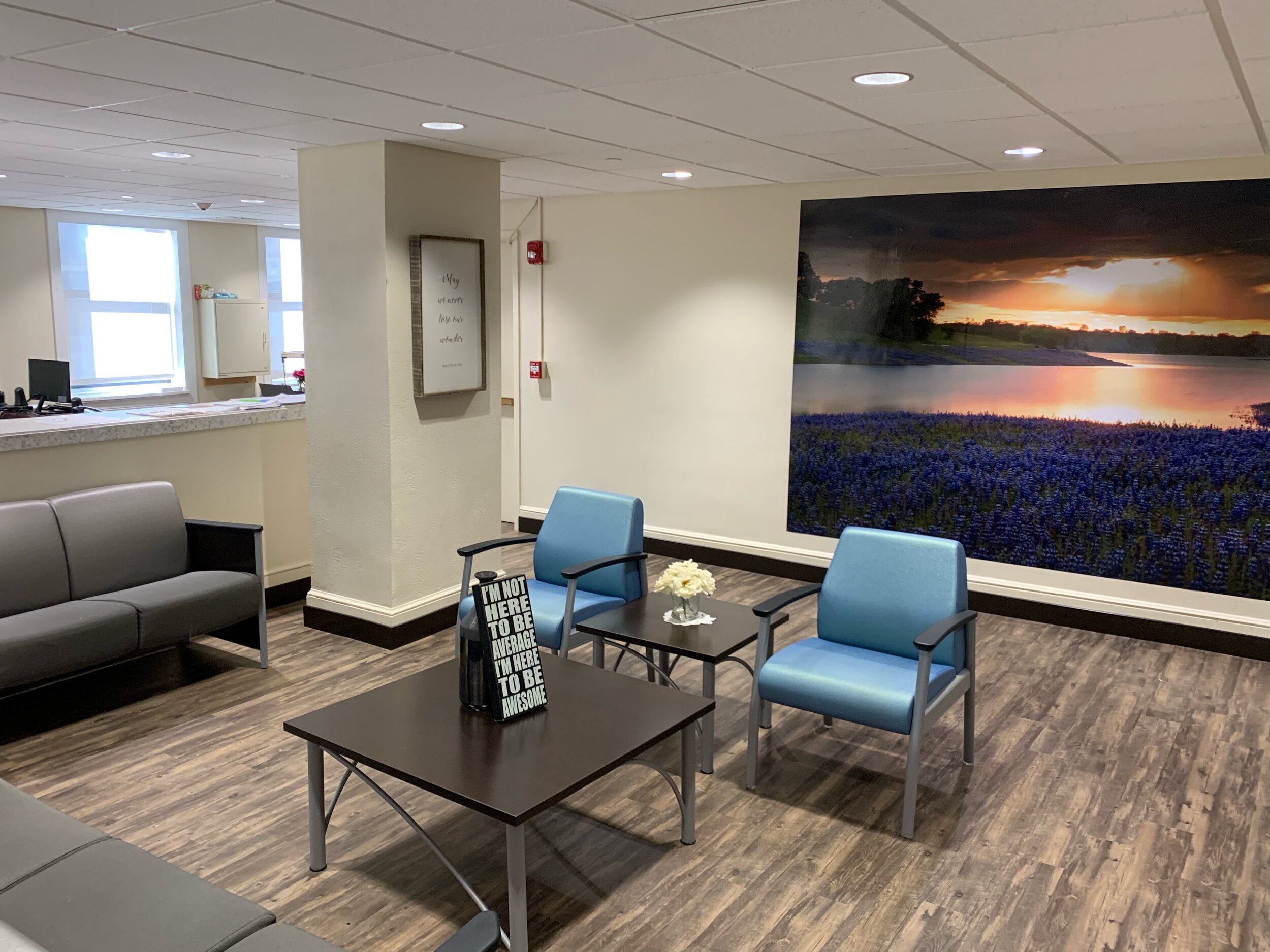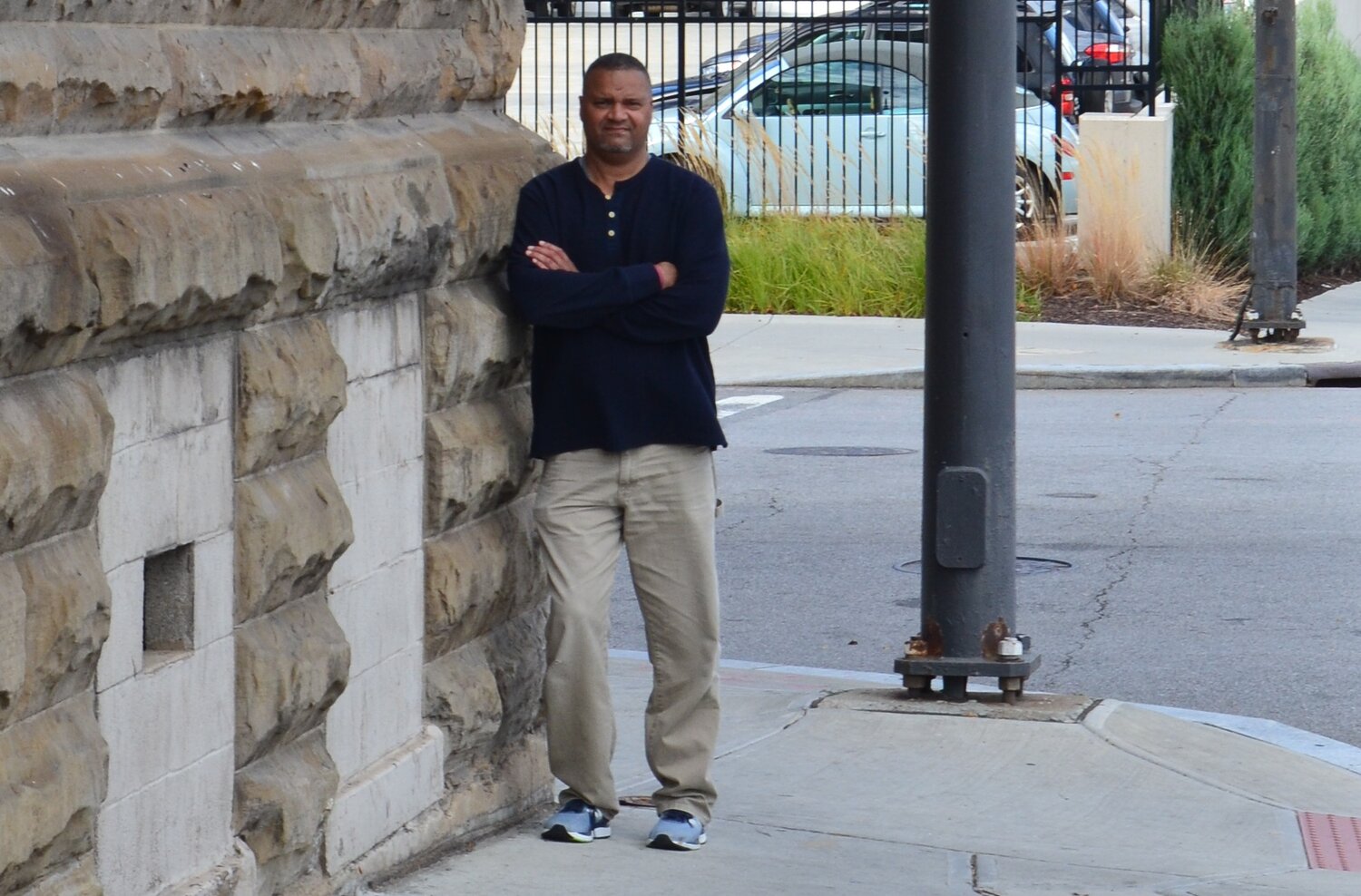Cleveland’s Salvation Army faces the challenges of rescuing sex trafficking survivors

Since 2018, the Salvation Army of Greater Cleveland has run a facility downtown dedicated to helping human trafficking victims. Yet now, although the residence remains full and there is an increase in demand due to the Covid-19 pandemic, the unit is fighting to remain open for the long-term.
Director Beau Hill says a shift in funding towards social services during the Covid-19 crisis coupled with loss of startup funding has caused a funding crunch. Recently, Hill learned they will not receive Victims of Crime Act funding disbursed annually by the Ohio Attorney General’s Office.
The organization had sought a VOCA grant to help pay for 24/7 operations of the center, which costs about a half million dollars per year. The Salvation Army has applied the past two years and has not received any funding, which may be because the program is not considered well-established yet.
“We aren’t sure of the full impact yet, but we know that ramping back up with a complete, distinct staff dedicated to the human trafficking program will probably not be possible,” he says.
Hill said they’ve received some additional foundation support, but not enough to cover expenses. In April, the Cleveland Foundation provided $50,000 to pay for additional food and sanitation products for the Salvation Army after the COVID-19 outbreak.
With the pandemic causing millions of Americans to lose their jobs and face enormous financial hardships, traffickers are exploiting and profiting off the most vulnerable. According to the International Labour Organization, in the US, “individuals who managed to leave their human traffickers are now considering—or are being forced to—return to their exploiters as they have lost their jobs, shelter, and medical insurance.”
Additionally, some trafficking victims who had found housing and support in shelters are becoming homeless again because many shelters that used to accommodate them are closing due to a lack of financial support.
The demand for prostitution, however, has not flagged during the pandemic.

The Hue Jackson residential center
When it opened on July 17, 2018, the center offered a rare facility dedicated to helping these women. It is named for the former coach of the Cleveland Browns because his foundation donated $50,000 a year for five years, which was used to repurpose a portion of a shelter addition completed in 2016 specifically for these residents. To operate and staff the dedicated 24/7 center costs the Salvation Army between $450,000 and $500,000 annually.
Residents enter the Jackson unit in two ways: they are rescued by law enforcement or they contact the Project STAR (Sex Trafficking Advocacy and Recovery) Hotline at the Cleveland Rape Crisis Center (CRCC). The emergency housing facility also provides detox services, since many of the women arrive addicted to alcohol or chemical substances. Their length of stay ranges from two hours to six months, according to Hill. The Salvation Army also provides a social worker to counsel the women on additional services in the community and next steps for their long-term recovery.
“Typically, there’s no safe place for these women to go, and you don’t want to put them in a correctional facility for short-term crisis housing because that’s punitive and not what they need,” says Kimberly Diemert, executive director, The Hue Jackson Foundation in Cincinnati. “They need the physical and emotional support necessary to help them through detox and the other ancillary services that we can guide them through once they become part of the survivor’s residence.”
CRCC steps up to provide additional services
“If the residential center closes or reduces its capacity, it creates a huge gap in services for some of the most vulnerable in our community,” says Sondra Miller, president and CEO of the Cleveland Rape Crisis Center.
In late August, the CRCC announced plans to open a Human Trafficking Drop-in Center possibly in the first quarter of next year. Intended as a complement to the Hue Jackson facility, it will provide intensive onsite services to victims that cover basic needs such as clothing, hygiene, food and daytime shelter, as well as mental health counseling, addiction rehabilitation, victim advocacy, workforce training, and life and parenting coaching. It will not offer overnight stays. The drop-in center is funded for three years through a mix of private and public funding, including the Billie Howland Steffee Family Fund and the Office of Victims of Crime.
“We spent a lot of time talking about funding and sustainability of these programs, but this has come about because we were awarded a three-year federal grant,” Miller says. “Much like the Salvation Army, we will also be looking for philanthropic partners to help us pay for the ongoing operations.”
How the Hue Jackson center came to be
Hill and Cleveland’s Salvation Army have been assisting trafficking survivors since 2005. However, they did not have a dedicated space until 2016 when they expanded their downtown shelter and added an apartment unit specifically for human trafficking survivors.

In the early 2000s, John Morgan, then working as a special agent for the FBI’s regional trafficking task force, had identified a growing need for a safe place to house survivors of trafficking other than jail or an overcrowded women’s shelter structured to accommodate victims of domestic violence. There are overlapping concerns, but trafficking survivors have different and very distinctive needs. Morgan, who is now a detective with the regional human trafficking task force, began working with Hill to provide emergency housing at the Salvation Army, but they both knew the need was significantly greater.
Then in July 2017, Jackson and his wife Michelle announced their new foundation and its mission to support victims of human trafficking in Cleveland.
When the residential facility opened, the intention was for the foundation to continue to help fund the operations. However, once Jackson was fired by the Browns midway through the 2018 season, he lost the high-profile cache to drive future fundraising.
Fortunately for the community, Hill is fiercely committed to continuing to assist trafficking survivors. In September, when two of nine dedicated staff members left to take higher-paying jobs, it became difficult to provide 24/7 operations. He made the decision to shut down the 12-bed unit and return to six beds but can accommodate more, if there is a need. As of last week, there were nine women living in the space.
Thus far, Hill says, the facility has remained at capacity since it opened.
Jeanne Allert, founder and executive director at The Samaritan Women in Baltimore, MD, whose Institute for Shelter Care provides extensive research into compassionate housing and services for trafficking victims, says the Salvation Army’s revised model for the unit with six to eight beds is more the norm, according to their 2017 report “The Practices Study” that provides a baseline benchmark study of 69 shelter programs across the US.
Community partners critical to assisting survivors
One of the anchor community partners is the Renee Jones Empowerment Center. Founder and Director Jones, who opened her center in 2002, knows there has always been a shortage of housing for human trafficking victims. “It has a huge impact on empowering the whole person,” she says. “If you don’t feel safe and secure, and you don’t have a place to lay your head, then you can’t really take advantage of any of the counseling or support services or anything else.”
Ohio State Senator Teresa Fedor (11th District, Toledo) concurs. “You can rescue all you want, but if there’s no path to rehabilitation and healing, it just makes it difficult for an individual to get on their road to recovery,” says Fedor, who has spent the past 15 years writing and getting bills passed to help sex trafficking survivors and fight sexual violence of all forms.
According to Christi Bartman, PhD, an anti-human trafficking advocate in Columbus, Ohio who consults with Fedor, there are only a few shelters in Ohio that offer beds specifically for trafficked victims. The majority go into housing that serves a broader population. In her In Public Safety article “The Challenges of Finding Housing for Human Trafficking Victims,”she writes that “trafficking victims need very specific care, most prominently their need for safety. Many times, traffickers will threaten them or continue to offer the drugs they desire. In those instances, the victims will simply walk out of the shelter, right back into the life of drugs and prostitution.”
The trauma-informed unit stands as a critical need for Northeast Ohio, which has nothing else comparable. For women – for anyone – rescued from sex trafficking, housing and detox are just the starting place for a long, complex recovery. Victims typically suffer from a variety of challenges, including PTSD from being beaten, abused and raped repeatedly because they were made to perform commercial sex acts via force, fraud or coercion that qualifies as trafficking.
As of July, the unit had provided services to more than 200 women totaling more than 3,500 nights of services.
‘There have been some success stories and some losses at the facility,” says Morgan, who gives full credit to Hill for making the facility welcoming, comfortable and with full services and amenities for the residents. “Whether or not they are ready to take advantage is up to each woman, but it gives the victims a chance to get their lives back together.”
How you can help: Salvation Army and Renee Jones Empowerment Center are seeking donations of money, clothing and personal hygiene items. To volunteer or become a mentor at the RJEC, contact Renee Jones at 216/417-0823. The Cleveland Rape Crisis Center is also seeking volunteers and donations.
Christopher Johnston has published more than 3,000 articles in publications such as Christian Science Monitor, Scientific American and Time.com. His book, Shattering Silences: New Approaches to Healing Survivors of Rape and Bringing Their Assailants to Justice (Skyhorse) was published in February 2018.
